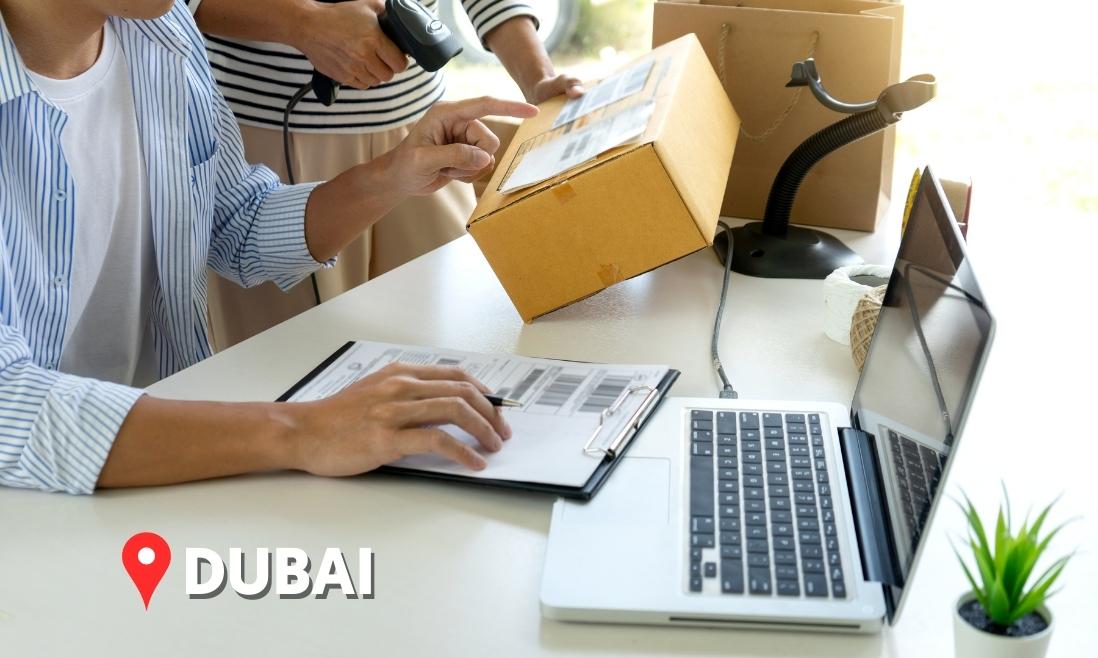Sit back and let your mind wander into the imaginary city of Dubai, what would you see?
It’s easy to visualize the breathtaking views, the ultramodern infrastructure, or the citizens’ flashy look. Everything about Dubai exudes a vibe that can be captured in one word: Wealth.
But even in a place filled with promise, starting an e-commerce business comes with its own set of hurdles. Wondering how to leap over these obstacles and plant your flag in Dubai’s digital marketplace? You’re in the right spot!
This article is a guide on how to start an e-commerce business in Dubai. We’re here to walk you through everything from the ground up, making sure you’re well-equipped to dive into this rich market.
Let’s get started on this journey to e-commerce success in Dubai together!
An Overview of The Ecommerce Climate in Dubai
Dubai is like a shining star in the world of e-commerce in the Middle East. It’s growing fast, and there are some pretty cool reasons why this is happening. Let’s dive in and see what’s making Dubai’s e-commerce scene tick:
- Everyone’s Online: Imagine almost everyone in Dubai walking around with a smartphone in their hands, shopping online whenever they want. That’s because a lot of people in Dubai have internet access and smartphones, making it super easy to buy things online.
- Tech-Savvy Shoppers: The people in Dubai aren’t just young and rich; they also love technology. This means they’re always looking for the newest and coolest ways to shop online.
- Government’s Helping Hand: The government in Dubai is like a big cheerleader for e-commerce. They have rules and plans that make it easier for online businesses to grow.
- Top-Notch Delivery Networks: Dubai has amazing systems in place to get your online orders to your doorstep fast and without hassle. This makes shopping online a breeze.
- Shopping From Home Got Big: When the pandemic hit, more people started shopping online because it was safer and more convenient. This really sped things up for e-commerce in Dubai.
- A World of Opportunities: Dubai is at the crossroads of the world, attracting big international online stores. This means shoppers have a lot of choices and businesses need to keep coming up with new ideas.
The future looks bright for e-commerce in Dubai. Experts think that by 2026, people will be spending about $9.2 billion online in the UAE. And it doesn’t stop there. With more people getting used to shopping online every day, e-commerce is set to become a big part of how everyone shops in Dubai.
How to Start An Ecommerce Business in Dubai

Step 1: Decide on your products
At the end of the day, doing business means selling something that makes a profit, so now you’ve got to find that ‘something’ for you to sell.
If you already have a product in mind, then congratulations! For struggling merchants, some potential options include:
- A ‘solution’ to customers’ problems
- A certain skill you are good at
- Knowledge and expertise that you mastered
- A trendy service among consumers
- (Simply) a product with a high-profit margin
From the get-go, it’s advisable to do market research and find a product that drives good sales.
Step 2: Decide on your business model
The market potential of Dubai allows for various online business models. Some of them include B2B, B2C, C2B, C2C, and Dropshipping.
- B2B (Business-to-Business): The concept is related to the transaction between one business and another. Typically, one business will provide input materials for another to use in their production process for output.
- B2C (Business-to-Customer): This one is probably the most popular model in Dubai. The products will go straight from the business to the end user (customers). In this model, a third party is not required.
- C2B (Consumer-to-Business): This one is simply the opposite of B2C. Let’s take the example of freelancers on Upwork or Fiverr. They work for companies and get paid. That’s C2B.
- C2C (Consumer-to-Consumer): This model allows customers to trade with each other, mostly on an online platform. It contrasts sharply with B2C and B2B. Examples of C2C are auctions or classified ads.
- Dropshipping: Retailers who go for the dropshipping model do not store the products they sell. Instead, when customers demand their product, they will get it directly from suppliers and request a delivery order from third-party logistics.
Step 3: Register your company’s name

As a matter of fact, every company needs a name. Although it sounds simple, it actually isn’t.
First, you need to fill in an application form from the Dubai Economic Department. The vast majority of Dubaian citizens are Islamic, so be careful with sensitive words and acronyms.
Besides, don’t randomly pick a name, instead choose one closely related to your company activity. This will also help in designing your logo.
Finally, ensure your company name does not belong to an existing firm. Duplication ruins reputation.
Step 4: Get an eCommerce license
When it comes to the question of how to start an eCommerce business in Dubai, you cannot skip this crucial test. The authority here has rigid legal procedures for online merchants, so you should spend some time reading about them. It helps you to stay out of unnecessary trouble with the law.
To be specific, there are two options you can go for: A free zone license & Mainland license.
- Free zone license: If you sell a service or product that can be provided remotely without being physically present, then a Free zone license should be enough. Note that your company operation will be restricted in the non-free zone, that’s when local agent support is needed.
- Mainland license: You need a Mainland license if you sell a service (or product) and a physical presence is required. Once you have the license, you can freely operate anywhere in the UAE in general and in Dubai in particular. a
Step 5: Develop your website/application
Of course, this step is unavoidable when it comes to eCommerce. In the absence of a brick-and-mortar store, an eCommerce website is the only space where customers can turn to and make purchases.
A website would be cool, but what about a mobile app? Great. In eCommerce terms, this is called omnichannel sales, a customer-oriented approach where channels are interconnected to create a seamless shopping experience.
You can hire freelancers or an agency to build the website and app, or simply do it yourself, but we do recommend the former option. The benefits of it are countless: better customer experience, better brand awareness, better revenue, etc.
Step 6: Pick an eCommerce platform
Ever heard of such big names as Magento, Shopify, or WooCommerce? These are just some big names in the huge online commerce ecosystem worldwide, not just in Dubai.
An eCommerce platform benefits both sellers and buyers. For sellers, it does not only help you build your site, but it also aids in managing your store with convenience and efficiency. For buyers, they should rejoice in a seamless shopping experience, easy checkout, etc. Everything can be done with an Internet-connected device.
Step 7: Establish a payment gateway
The main role of a payment gateway is to let you get the money from every product sold.
You only need two things for a proper payment gateway, i.e. your own bank account and a payment service provider. Pay them, get your bank account linked and you’re good to go.
Step 8: Get ready with warehousing and logistics

[If you’re going for the Dropshipping model, you may well skip this step]
Warehousing and Logistics functions of an eCommerce business cannot be comprehensively demonstrated in one article, so we will only provide you with the nuts and bolts of it.
Some factors you need to take into consideration are space, local climate (Dubai has a hot desert climate), distance to customers/suppliers, security, customization needs, and above all, budget.
Step 9: Plan your marketing strategy
This is a quintessential part of any online business. The higher your reach is, the more products you’re likely to sell. Accordingly, your revenue stands a better chance of being boosted.
Marketing comes in various categories and classifications, such as Search Ads, Display Ads, SNS Marketing, etc. Remember to combine them wisely so that they suit your corporate budget.
Step 10: Make guidelines for customer acquisition and retention
Another name for this step is Customer Service.
- How can you attract new buyers?
- How can you maintain the loyalty of your close consumers?
- How to deal with negative feedback?
You will have to answer these questions by yourself later on.
A guideline for customer service would be of great help from day one. Happy customers raise your brand awareness and vice versa.

